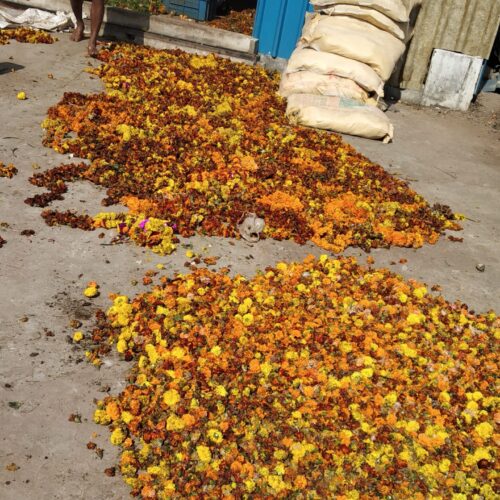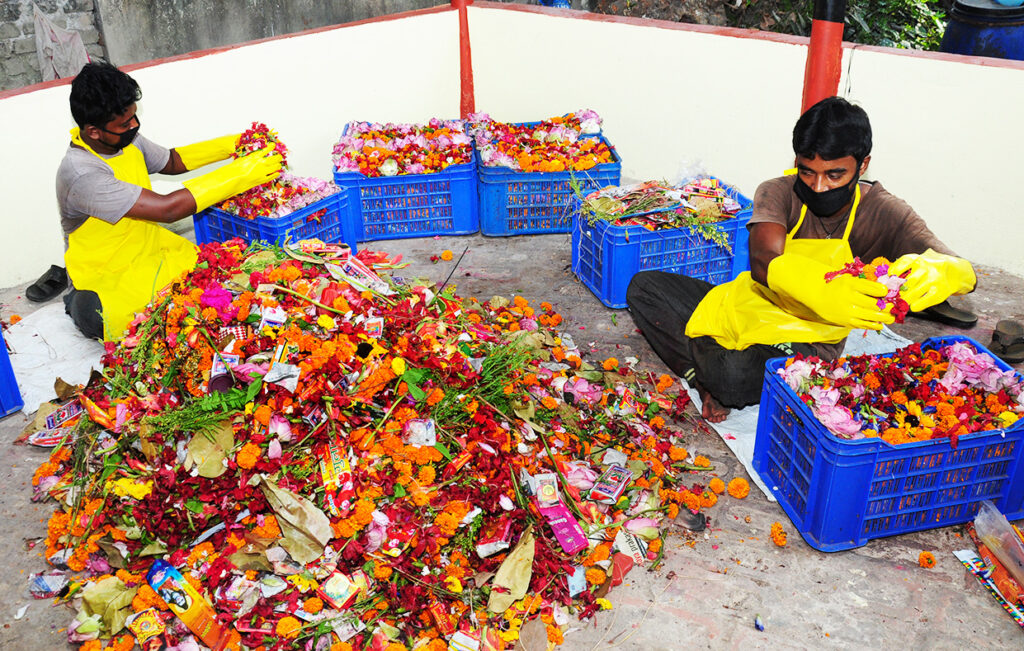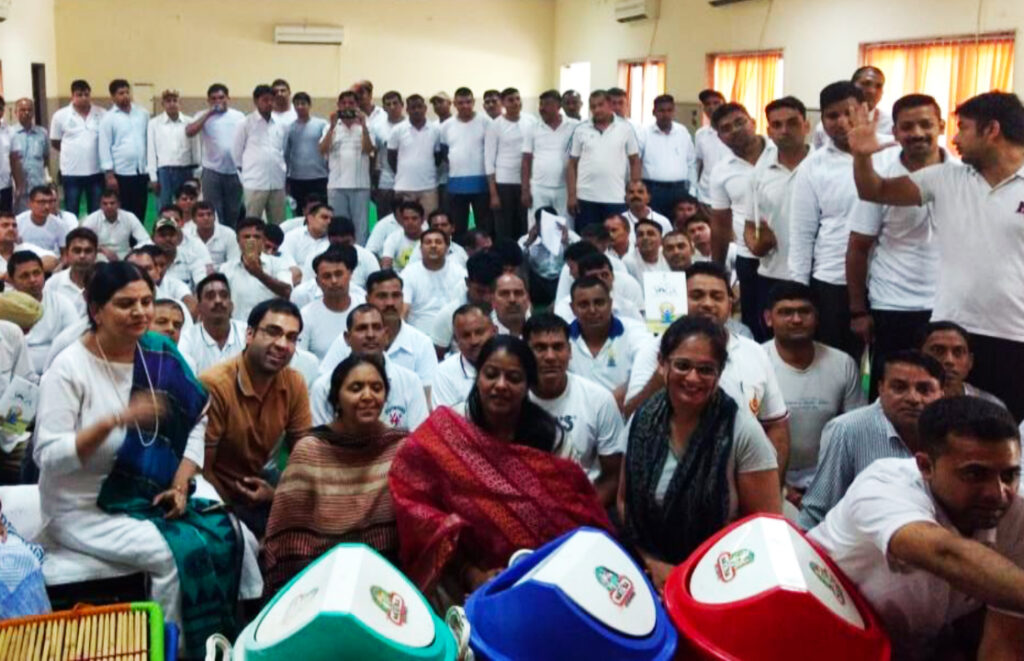



MAKING SANITATION ACCESSIBLE
CONTRIBUTE TO A CLEANER INDIA
SHUDDHI – EMPOWERMENT THROUGH WASTE MANAGEMENT
One of the biggest ramifications of ever accumulating pollution is an untreated waste. In rural areas, where adequate infrastructure for the efficient disposal of waste is absent, untreated waste poses a serious health hazard for communities. Over recent years, numerous methods have been developed by which the waste is not only treated but is also converted to an alternative source of energy.
SSRDP with its expansive outreach in rural India is bringing these methods into a workable, simple and sustainable reality. Under SSRDP, we do health and hygiene camps (5H Program), medical camps, stress relief workshops, construction of houses, toilets, bore-wells, and water bodies’ rejuvenation.

OUR GOALS

To reduce and eliminate waste at source along with building sustainable usage practices.

To increase awareness on Waste Management, Disposal & Segregation

To improve health & hygiene for society at large. To improve the quality of life in civic society.
OUR OBJECTIVE
Spread awareness about segregation of Waste and right Disposal. To teach about Reduce, Reuse & Recycle Waste
Develop a knowledge driven approach among beneficiaries, for achieving holistic approach in waste reduction & disposal.
To implement best practices in the way of Waste Management at social, institutional & government level.
To develop more solutions, systems and technology to create value out of waste, manage waste cost efficiently, innovatively such as through Waste Composting,
INTERVENTIONS
Awareness and Sensitization Drives on Waste Management and Hygiene
Decentralising Organic Solid Waste Management with Municipal Corporations
Religious Shrine Flower Waste Management
Bio-Enzyme Based water-body Cleaning
OUR PROJECTS

BIOGAS PLANTS INSTALLATIONS

TOILET CONTRUCTION – HUMAN WASTE DISPOSAL
The project was started in 1985 near Bengaluru to empower illiterate and abused women. Today, over 2000 women from 30 villages have been trained in sewing, embroidery and have also been taught basics of literacy, health and hygiene.

TEMPLE WASTE MANAGEMENT(WEST BENGAL)
Eliminating the need for landfills and removing organic waste from temples, as well as offering a sustainable, natural, safe, and ethical way of processing temple waste. Compost fertilises fields, encourages chemical-free agriculture, and protects soil and groundwater.
In terms of waste management, we take a long-term, holistic approach. We assist effective waste management by focusing on waste awareness and education, removing waste at the source using the 3Rs (Reduce, Re-use, Recycle), and using a decentralised approach.

ENZYME PREPARATION AND TRAINING PROJECT
OUR EXECUTION MODEL

BUILDING A TEAM
We build youth leaders through the Karma Yog which is a form of a Youth Leadership Training Program who work along with rural managers to drive the project. They work at various stages of the project, including conducting surveys, motivating families to get toilets constructed, and ensuring villages stay open-defecation-free.
ASSESSMENT SURVEY


